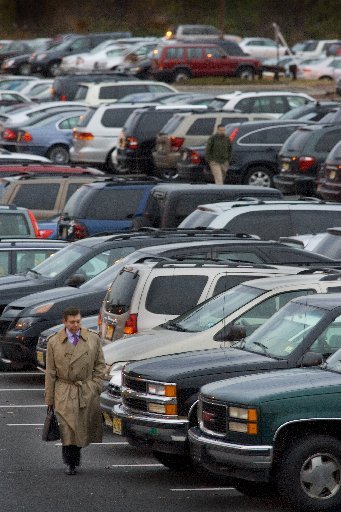New Jersey Future Blog
Saving Money by Choice
June 30th, 2005 by Tim Evans
- New Jerseyans living in the New York and Philadelphia metropolitan areas come out on top in a new national study that ranks 28 metropolitan areas on the percent of household budgets used to cover transportation costs.
- Residents of the New York region pay 15.4 percent of their household budget for transportation; residents of the Philadelphia region pay 15.9 percent. Only residents of Baltimore (14 percent) and Portland (15.1 percent) pay less.
- Transportation choice is the reason, the study concludes. Residents of regions dependent primarily on automobile travel pay a much higher percentage of their household budgets for transportation because of gasoline costs: leading this list are Houston (20.9 percent), Cleveland and Detroit (20.5 percent each).
- Transportation costs are second only to housing in the average family budget, the study found. Healthcare and food are the third and fourth highest expenses, but even when combined cost less than transportation.
Source: “Driven to Spend” study by the Surface Transportation Policy Project (STPP) and the Center for Neighborhood Technology (CNT).
TRANSPORTATION INVESTMENT A NECESSITY
Families and individuals living in regions that have invested in public transportation reap financial benefits from their options, even in the face of rising gasoline prices, according to the national study, “Driven to Spend.”
Unfortunately, transportation costs still claim a hefty share of household budgets no matter what corner of the country you live in, and hit low-income families the hardest.
New Jersey, with one of the most extensive transit infrastructures in the nation, holds an advantage in transportation choice today. Whether New Jersey maintains that advantage will depend on the state’s willingness to invest in transit maintenance and expansion, and to help rebuild the urban and older suburban communities that host the majority of transit stops and stations.
NJ Transit, which operates the state’s rail and bus lines, lacks enough funding to cover its operating costs. Instead, it must cover these costs from its capital budget, using money that’s supposed to keep vehicles and infrastructure in decent shape. The state’s Transportation Trust Fund is exhausted, because New Jersey has borrowed against all of its existing transportation revenue.
New Jersey can no longer ignore the magnitude of its transportation financing deficit. State leaders must ensure that transportation is adequately funded by providing a stable, revenue stream for the Transportation Trust Fund to reduce state reliance on bonding, and to reduce the share of the Fund that must be used for debt service. This should include raising New Jersey’s gas tax, one of the lowest in the nation. A small increase in gas tax, coupled with stable funding by the state, is essential to maintaining today’s lower-cost transportation system, and to ensuring New Jersey remains a state of transportation choices.
















